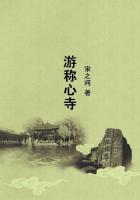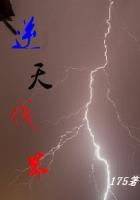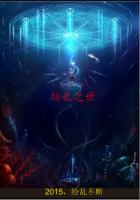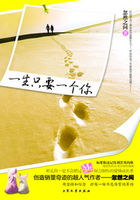It will, in these days, be scarcely believed that little more than a hundred and fifty years ago a prize of not less than ten thousand pounds should have been offered for a method of determining the longitude within sixty miles, and that double the amount should have been offered for a method of determining it within thirty miles! The amount of these rewards is sufficient proof of the fearful necessity for improvement which then existed in the methods of navigation. And yet, from the date of the passing of the Act in 1714 until the year 1736, when Harrison finished his first timepiece, nothing had been done towards ascertaining the longitude more accurately, even within the wide limits specified by the Act of Parliament. Although several schemes had been projected, none of them had proved successful, and the offered rewards therefore still remained unclaimed.
To return to Harrison. After reaching his home at Barrow, after his visit to London in 1728, he began his experiments for the construction of a marine chronometer. The task was one of no small difficulty. It was necessary to provide against irregularities arising from the motion of a ship at sea, and to obviate the effect of alternations of temperature in the machine itself, as well as the oil with which it was lubricated. Athousand obstacles presented themselves, but they were not enough to deter Harrison from grappling with the work he had set himself to perform.
Every one knows the beautiful machinery of a timepiece, and the perfect tools required to produce such a machine. Some of these tools Harrison procured in London, but the greater number he provided for himself; and many entirely new adaptations were required for his chronometer. As wood could no longer be exclusively employed, as in his first clock, he had to teach himself to work accurately and minutely in brass and other metals. Having been unable to obtain any assistance from the Board of Longitude, he was under the necessity, while carrying forward his experiments, of maintaining himself by still working at his trade of a carpenter and joiner. This will account for the very long period that elapsed before he could bring his chronometer to such a state as that it might be tried with any approach to certainty in its operations.
Harrison, besides his intentness and earnestness, was a cheerful and hopeful man. He had a fine taste for music, and organised and led the choir of the village church, which attained a high degree of perfection. He invented a curious monochord, which was not less accurate than his clocks in the mensuration of time.
His ear was distressed by the ringing of bells out of tune, and he set himself to remedy them. At the parish church of Hull, for instance, the bells were harsh and disagreeable, and by the authority of the vicar and churchwardens he was allowed to put them into a state of exact tune, so that they proved entirely melodious.
But the great work of his life was his marine chronometer. He found it necessary, in the first place, to alter the first mover of his clock to a spring wound up, so that the regularity of the motion might be derived from the vibrations of balances, instead of those of a pendulum as in a standing clock. Mr. Folkes, President of the Royal Society, when presenting the gold medal to Harrison in 1749, thus describes the arrangement of his new machine. The details were obtained from Harrison himself, who was present. He had made use of two balances situated in the same plane, but vibrating in contrary directions, so that the one of these being either way assisted by the tossing of the ship, the other might constantly be just so much impeded by it at the same time. As the equality of the times of the vibrations of the balance of a pocket-watch is in a great measure owing to the spiral spring that lies under it, so the same was here performed by the like elasticity of four cylindrical springs or worms, applied near the upper and lower extremities of the two balances above described.
Then came in the question of compensation. Harrison's experience with the compensation pendulum of his clock now proved of service to him. He had proceeded to introduce a similar expedient in his proposed chronometer. As is well known to those who are acquainted with the nature of springs moved by balances, the stronger those springs are, the quicker the vibrations of the balances are performed, and vice versa; hence it follows that those springs, when braced by cold, or when relaxed by heat, must of necessity cause the timekeeper to go either faster or slower, unless some method could be found to remedy the inconvenience.
The method adopted by Harrison was his compensation balance, doubtless the backbone of his invention. His "thermometer kirb,"he himself says, "is composed of two thin plates of brass and steel, riveted together in several places, which, by the greater expansion of brass than steel by heat and contraction by cold, becomes convex on the brass side in hot weather and convex on the steel side in cold weather; whence, one end being fixed, the other end obtains a motion corresponding with the changes of heat and cold, and the two pins at the end, between which the balance spring passes, and which it alternately touches as the spring bends and unbends itself, will shorten or lengthen the spring, as the change of heat or cold would otherwise require to be done by hand in the manner used for regulating a common watch." Although the method has since been improved upon by Leroy, Arnold, and Earnshaw, it was the beginning of all that has since been done in the perfection of marine chronometers. Indeed, it is amazing to think of the number of clever, skilful, and industrious men who have been engaged for many hundred years in the production of that exquisite fabric--so useful to everybody, whether scientific or otherwise, on land or sea the modern watch.

